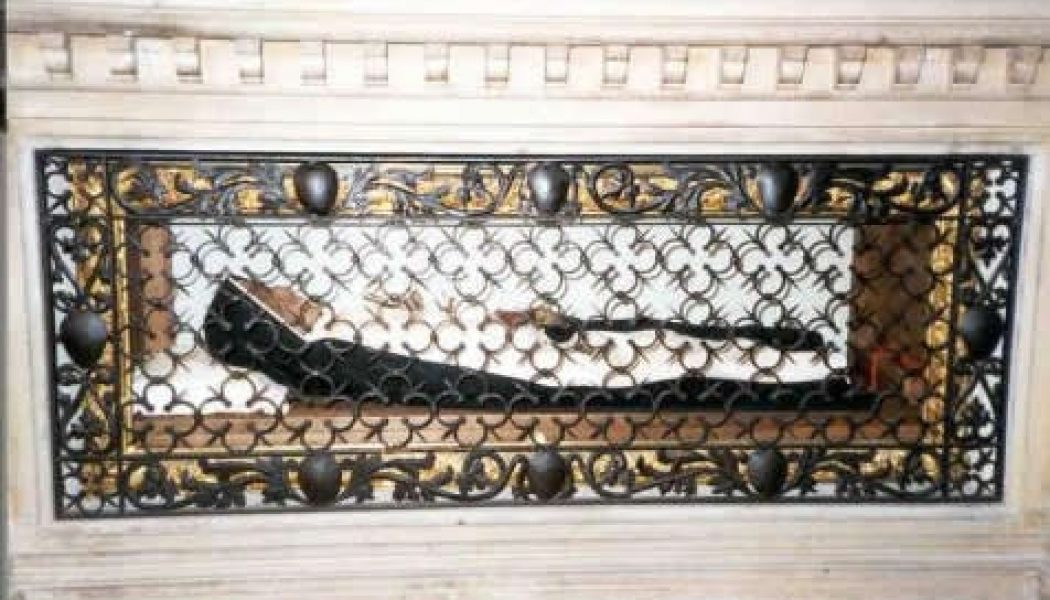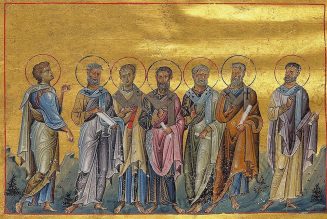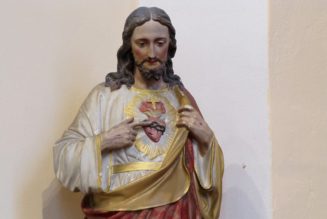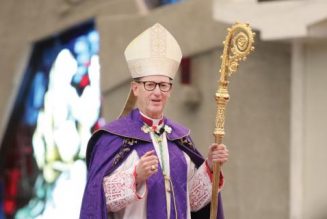Hey everybody,
Here’s the news you need to know:
Knoxville
On Friday, we reported that the Vatican’s Congregation for Bishops has received numerous reports regarding Bishop Rick Stika of Knoxville, and that the bishop could soon face an investigation:
Complaints filed against the bishop allege that Stika impeded or restricted investigations into accusations of serial sexual misconduct by a seminarian who was living in his home, according to multiple sources in both the United States and Rome.
The bishop told The Pillar that he acted properly:
For his part, the bishop told The Pillar that he too had acted appropriately.
“If you run that story you’re going to be embarrassed in a couple days,” Stika told The Pillar, “because we followed the process, the procedure, the review board was involved, the initial thing was a personnel issue…and I handled it.”
“It was all followed exactly, I’m not covering anything up,” he added.
“I make no apologies.”
St. Margaret of Castello
In 1287, Margaret of Castello was born blind, physically disabled, and with dwarfism. Her parents were so ashamed of her they locked her in a cell — or a series of cells — for almost ten years. Then they abandoned her.
But Margaret became a lover of Christ, a friend of the poor, and, on Saturday, Pope Francis announced that Margaret is a saint.
Read about her incredible story, and her somewhat unusual canonization.
Money, money, money
Europe’s anti-money laundering watchdog, Moneyval, is expected to issue a report this week on financial crime reform at the Holy See.
We report a lot on financial crime and financial scandal at The Pillar, because, well, there is a lot of it to report on. But the Moneyval report won’t be all bad news for Holy See, because the Vatican’s efforts to make it less easy to launder money through its institutions are having at least some positive effect.
Confession and the collection plate
Speaking of money: After The Pillar published last month a series on parish collections during the pandemic, we heard from a lot of people with interesting theories and ideas about parish offertory collections. One of the most common we heard is that parishes with more confession hours and more adoration hours tend to do better in their weekly offertory collection.
In fact, I’ve been hearing people say for years that as long as a priest offers frequent weekly confessions, the parish offertory will take care of itself.
We decided to use our parish collection database to test that theory. We asked a simple question: Were parishes with more weekly confession hours or weekly adoration hours likely to maintain their weekly collection levels while most parishes experienced drop-offs in 2020?
You can read the results of our data analysis here.
We’ve got more financial data analysis coming at The Pillar, and we’re building some new databases to work from. I should probably mention that your subscription to The Pillar helps make those things possible.
But there are some things data analysis can’t capture. In this study, for example, we can see that there was no predictive linear correlation between parish confession or adoration hours and stable parish giving during the pandemic. But we can’t see why.
I’ll offer you two theories:
-
Many parishes with the most confession and adoration hours are “commuter churches” — downtown parishes or cathedrals offering confessions and exposing the Blessed Sacrament during the weekdays, when people who work in urban centers might make a visit. But people visiting those parishes are more likely to give stably, via electronic giving, at the suburban parish where they worship during the weekend.
-
A key predictor for stable weekly parish giving is the charisma of the pastor and the personal relationships he’s formed with parishioners. I suspect, though I don’t have the data to prove it, that factor is more important to predicting parish weekly collections than devotional life, orthodoxy, or liturgical praxis. Especially in a culture where many people go to Mass at the place where they feel welcomed, rather in their territorial parish, the pastor sets the tone for so many things about the life of the parish, including the inclination of parishioners to commit to the kind of stable weekly giving that was in flux during 2020.
Finally, the average parish in our study offered 1.5 hours a week of confessions. I would note that offering more confessions, more frequently, is a good thing, in its own right and for its own sake, always and everywhere. I would also mention this July 2020 document from the Congregation for Clergy on the missionary identity and renewal of parishes. If you’ve not seen it, it’s pretty good.
Just have babies – sustainable or not
The U.S. Census Bureau reported on Monday that U.S. population growth has slowed to one of the slowest growth rates in American history. One reason for this is a declining birthrate, another is declining immigration rates.
Comprehensive immigration reform and a just process for American immigration seems always beyond the reach — and the political will — of the Washington denizens who’ve built a very lucrative industry, and very comfortable job security, blaming one another for mutually beneficial gridlock on this issue, regardless of the human cost, or the economic cost. Fixing that won’t happen overnight.
But what can be addressed overnight, as it were, is America’s rapidly declining birthrate.
Economists and political scientists are good at cataloguing the various reasons why it is difficult for families to afford children, educate them, house them, raise them well, etc. Many of those reasons have real merit; there are indeed social policies that would make it easier for more American couples to have more children, even while certain aspects of the tax code are already written to encourage and incentivize baby-having.
But it’s a mistake to reduce declining fertility rates to economics, or to so technocratize human agency and decision-making as to completely disregard that part of the reason some Americans don’t have very many babies is because having babies is inconvenient, having several babies is exhausting, and having lots of children is so far outside our social norms that it doesn’t even occur to most couples.
We do a good job, though, of masking our growing social aversion to the inconvenience of too many babies in the language of virtue.
Consider that while the birth rate declines, pundits get paid actual money to write think pieces in legacy magazines asking “Is Having A Baby In 2021 Pure Environmental Vandalism?”
The goal of pieces like this, even while the author admits to having had a child, is to make clear that those who choose to be “childfree” might be doing so for very important reasons of social conscience.
Vogue is right that children actually are environmental disasters. Not because they emit too many greenhouse gases or consume too much water, but because children are equal opportunity destroyers: My son is the sweetest boy I know, but he’s driven to crush the ants and grasshoppers in our backyard with a burning hatred he can’t quite understand. And if he eventually catches the garter snakes he chases across the yard, I can not predict what kind of near-sociopathic “environmental vandalism” awaits them.
Why does he do those things? Because he’s a four-year old boy. Environmental terrorist is just in the job description.
Children are terrorists of all kinds. In pursuit of insect destruction, children ruin your yard. They take your youth, your energy, your money, and in my case, your once-sterling good looks. (My wife still manages to look good while raising children, but she’s a higher class of person than I am.)
Raising them almost never feels, in the language of Vogue, “sustainable.”
That’s because raising children demands of us love. But it also immerses in the community of love that is life’s meaning — a community that extends to include the divine persons of the Most Holy Trinity.
Having and raising children is an expression of what it means to be made in the image of God. We are procreative because He is love itself.
If we start to imagine it’s socially responsible not to have children, we’ve lost sight of what we have societies for in the first place: to share in the creative love of God himself, which includes the act of co-creating children with him, and includes the broader, more inclusive task of raising them to know, love, and serve him.
Life’s meaning comes from loving and being loved — not from having, consuming, or Instagramming — but from, one way or another, knowing the all-powerful and all-transforming love of God, and then, by the grace of his goodness, from sharing in the power of that love.
Of course, not all of us are called to be married. And some married couples carry the cross of infertility — they give the world the powerful gift of uniting their sufferings on the cross with the sufferings of Jesus Christ.
But those who can pitch in have an important duty to perform: Have a glass of wine or two, put on some music, and do your part to address America’s plummeting birth rate. It’s what we’re made for.
Please, as always, be assured of our prayers, and please pray for us.
Yours in Christ,
JD Flynn
editor-in-chief
The Pillar
Join Our Telegram Group : Salvation & Prosperity










